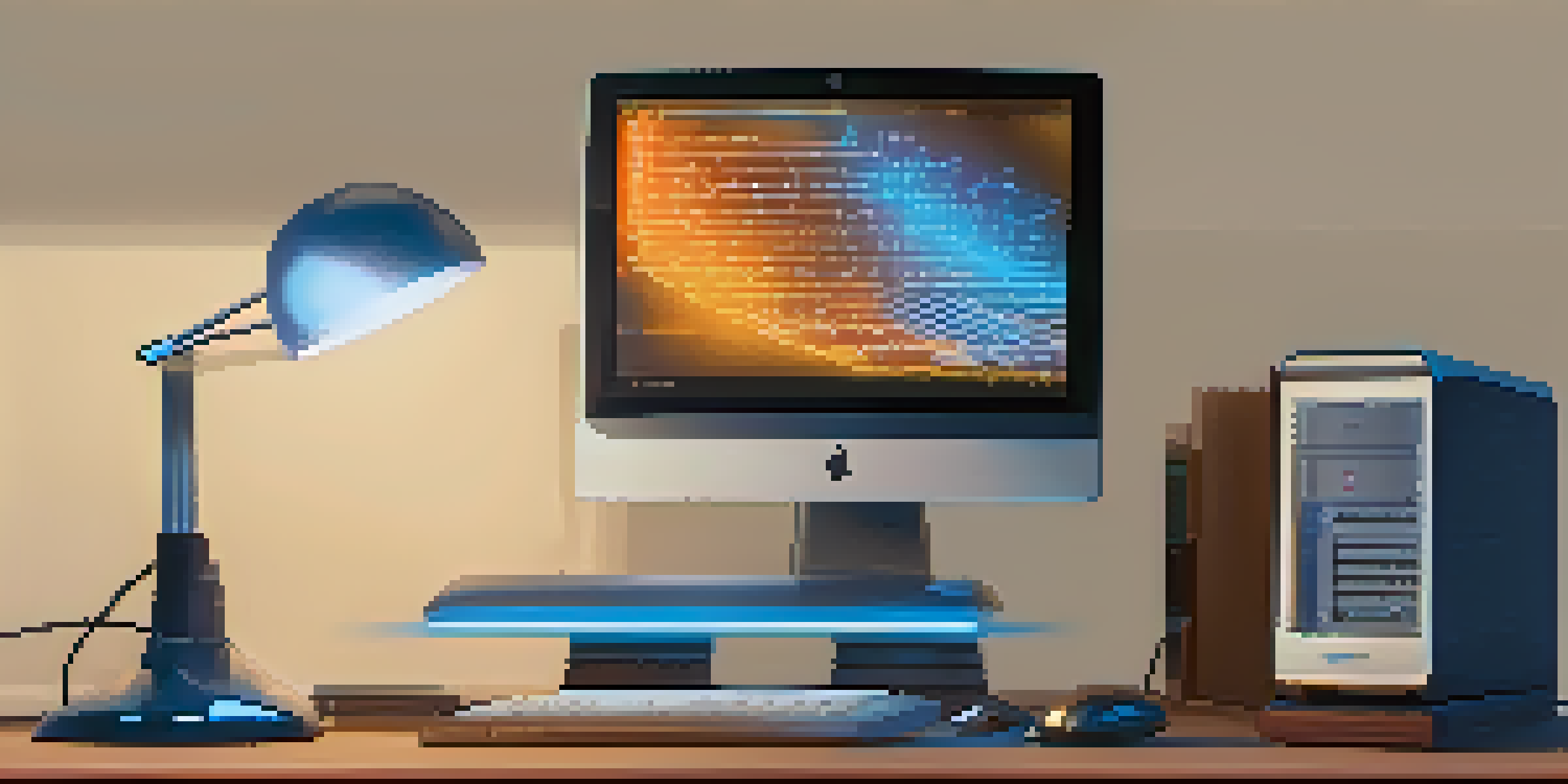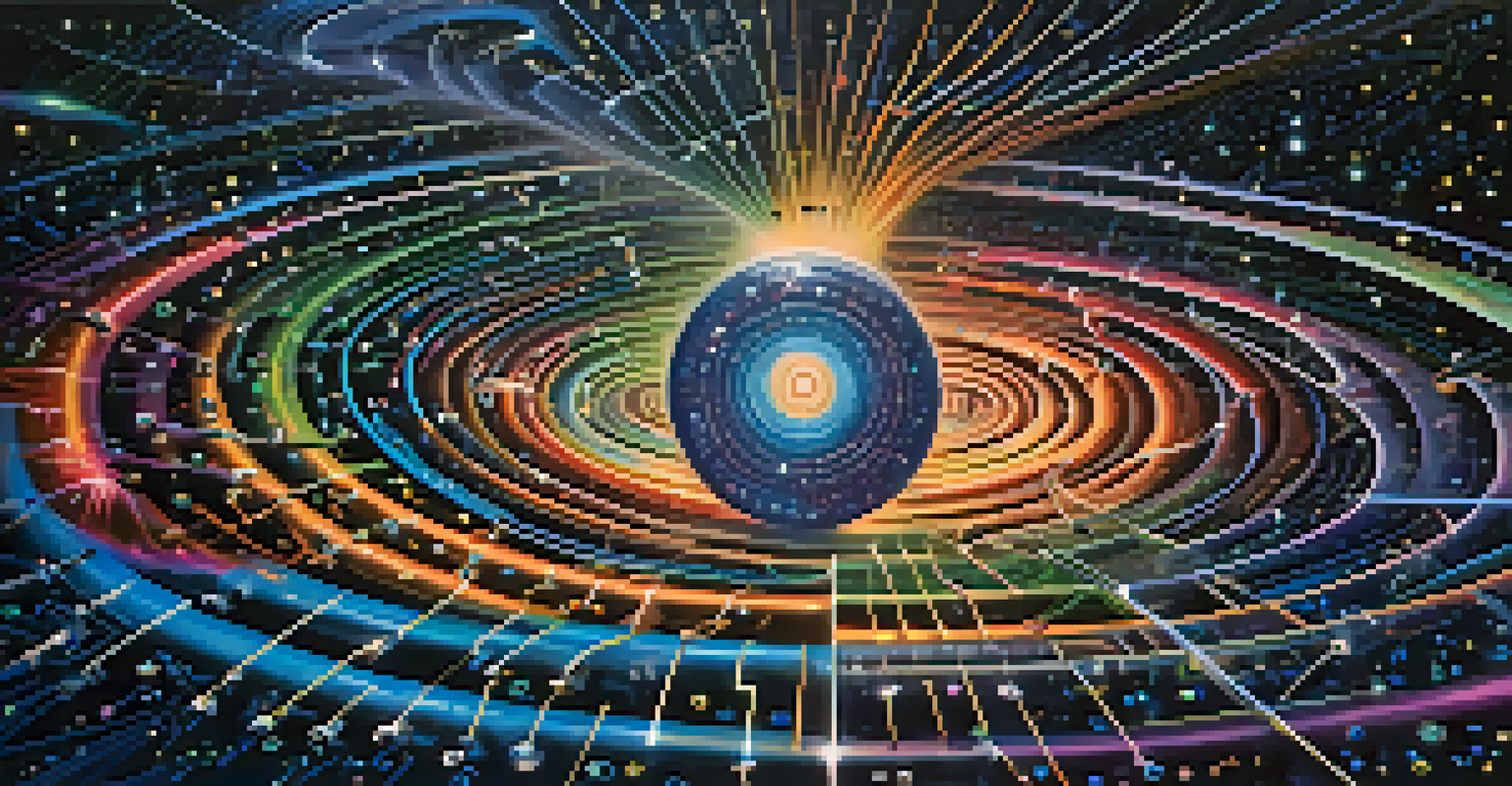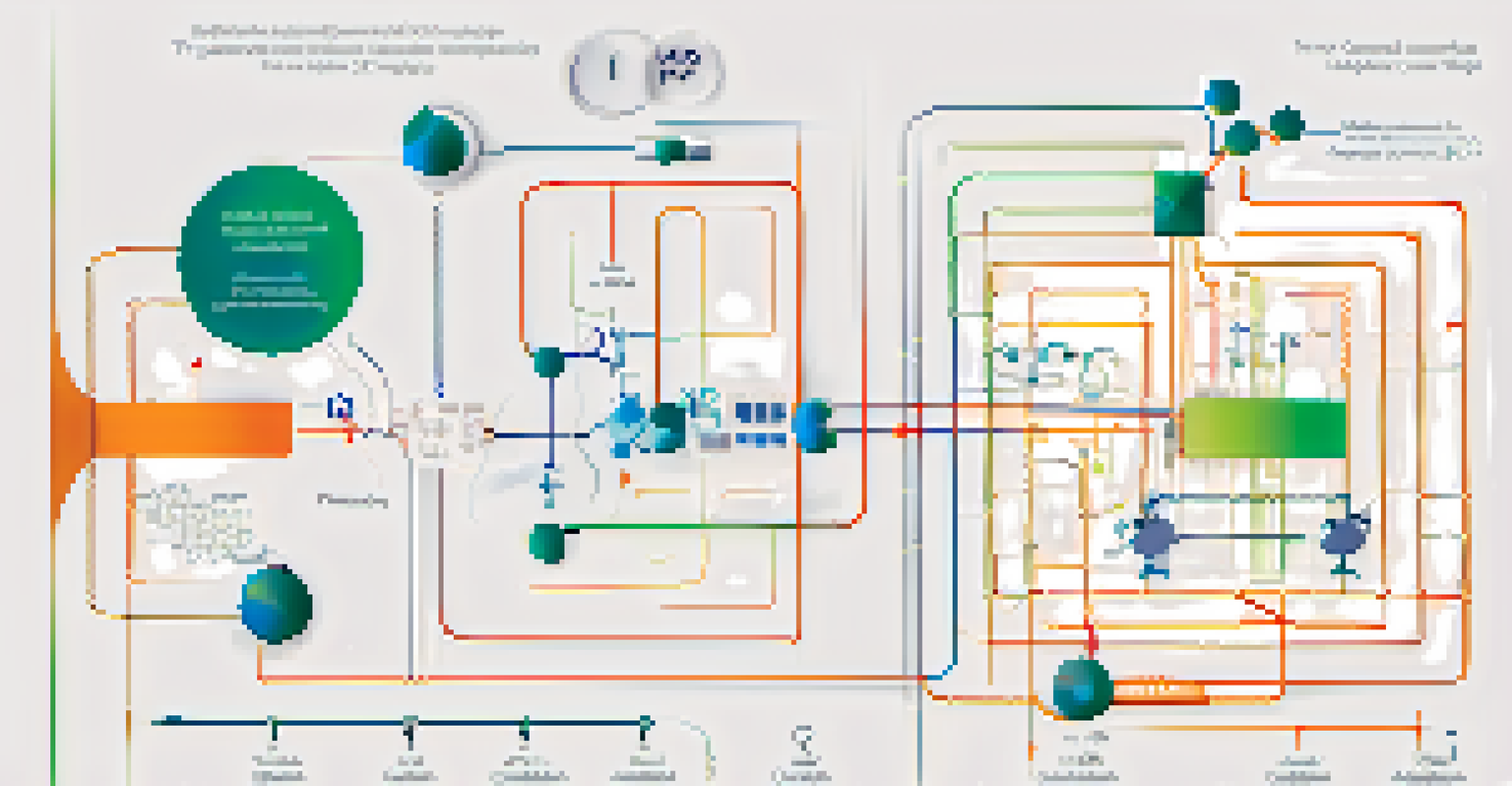Quantum vs Classical Computing: Key Differences Explored

Introduction to Quantum and Classical Computing
In the world of computing, two major paradigms exist: classical and quantum computing. Classical computing, the technology that powers our everyday devices, relies on bits as the smallest unit of data, either a 0 or a 1. On the other hand, quantum computing harnesses the principles of quantum mechanics, utilizing quantum bits or qubits, which can represent multiple states simultaneously. This fundamental difference sets the stage for the incredible potential of quantum computing.
The real problem is not whether machines think but whether men do.
Imagine classical computing as a traditional library where each book represents a different piece of information, with only one book being read at a time. In contrast, quantum computing resembles a library where you can read multiple books at once, drastically increasing the efficiency of information processing. This unique capability allows quantum computers to tackle complex problems that would take classical computers an impractical amount of time to solve.
As we delve deeper into the key differences between these two computing paradigms, it’s essential to understand how their distinct characteristics impact their applications and potential developments in the future.
Bits vs. Qubits: The Building Blocks
At the core of classical computing are bits, which are binary units of information. Each bit can exist in one of two states, 0 or 1, and these bits work together to perform complex calculations. Think of bits as tiny switches that can be turned on or off, allowing for straightforward operations based on binary logic.

In contrast, qubits are the fundamental units of quantum computing. Thanks to the principles of superposition and entanglement, a qubit can exist in multiple states at once. Picture a spinning coin that represents both heads and tails simultaneously until it lands; this is similar to how qubits can perform multiple calculations at once, exponentially increasing computational power.
Classical vs. Quantum Basics
Classical computing uses bits for straightforward tasks, while quantum computing employs qubits for complex calculations.
The difference between bits and qubits not only changes how data is processed but also opens up new avenues for solving problems that classical computers cannot handle efficiently, such as drug discovery and complex simulations.
Processing Power: Speed and Efficiency
One of the most significant advantages of quantum computing is its potential for extraordinary processing power. While classical computers perform calculations sequentially, quantum computers can execute many calculations simultaneously, making them incredibly efficient for certain tasks. This advantage becomes particularly apparent in fields like cryptography and optimization problems, where enormous datasets need to be processed.
Quantum mechanics is not just a part of physics; it is a new way of thinking, a new way of understanding the world.
For instance, consider a scenario where a classical computer is trying to find the optimal route for delivery trucks. It would analyze each possible route one at a time, which could take a considerable amount of time. A quantum computer, however, could evaluate all routes at once, drastically reducing the time needed to find the optimal solution.
As quantum computing technology continues to evolve, its ability to handle complex problems will likely revolutionize industries, from finance to pharmaceuticals, creating new opportunities and efficiencies.
Applications: Where Each Computing Type Excels
Classical computing excels in applications that require straightforward calculations and data processing, such as word processing, web browsing, and database management. These tasks are well-suited for the binary logic of classical systems, which can handle them efficiently without the need for advanced computational power.
Conversely, quantum computing shines in areas that involve intricate calculations and massive datasets. For example, in the field of drug discovery, quantum computers can simulate molecular interactions at an unprecedented scale, speeding up the development of new medications. Additionally, they hold promise in optimizing supply chains and enhancing machine learning algorithms.
Quantum's Processing Power
Quantum computers can perform multiple calculations simultaneously, significantly speeding up problem-solving in various fields.
Understanding these applications helps clarify why both classical and quantum computing are essential in the technology landscape. Each has its strengths and weaknesses, and the future may see them working in tandem to tackle a broader range of challenges.
Challenges Faced by Quantum Computing
Despite its promising potential, quantum computing faces several significant challenges. One of the primary hurdles is maintaining qubit stability, as quantum states are delicate and easily disrupted by environmental factors. This phenomenon, known as decoherence, poses a challenge for building reliable quantum systems that can perform prolonged calculations.
Furthermore, the current state of quantum technology is still in its infancy. Developing scalable quantum computers that can outperform classical systems in real-world applications requires substantial investment in research and infrastructure. Many experts compare this phase to the early days of classical computing when machines were large, expensive, and not yet widely accessible.
Addressing these challenges will require collaboration across various fields, from physics to engineering, as researchers work to unlock the full potential of quantum computing and bring it to fruition.
The Future of Quantum and Classical Computing
As we look ahead, the future of computing will likely be defined by a combination of classical and quantum technologies. While quantum computing offers remarkable capabilities, classical systems will continue to play a crucial role in everyday computing tasks. It’s not about one technology replacing the other; rather, it’s about finding the right balance and leveraging the strengths of each.
In many scenarios, hybrid systems that integrate both classical and quantum computing may be the most effective approach. For example, businesses could use classical computers for routine data processing while relying on quantum systems for specialized tasks that require heavy computation.
Future of Hybrid Computing
The integration of classical and quantum computing technologies will likely create innovative solutions across industries.
This collaboration between the two computing paradigms will likely accelerate innovation across various sectors, leading to breakthroughs we can only begin to imagine today.
Conclusion: Embracing the Computing Revolution
In summary, the differences between quantum and classical computing offer exciting insights into the future of technology. By understanding the unique characteristics of each system, we can appreciate the potential each brings to the table. Classical computing remains indispensable for many tasks, while quantum computing opens doors to solving complex problems that were once thought impossible.
As researchers continue to advance quantum technologies, it’s essential to remain curious and open-minded about the possibilities ahead. Embracing these advancements could lead to transformative changes across industries, impacting everything from healthcare to finance and beyond.

Ultimately, the journey of computing is just beginning, and both classical and quantum systems will play vital roles in shaping our technological landscape for years to come.